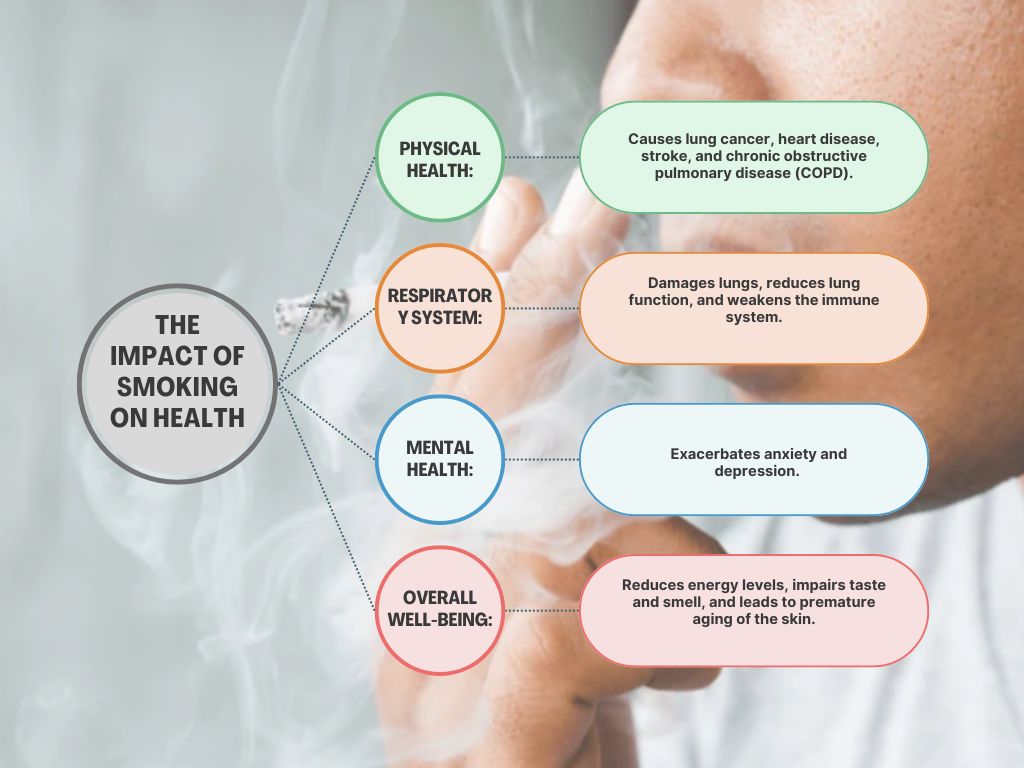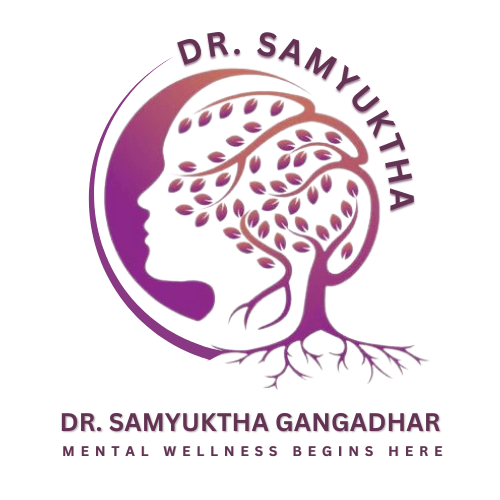Introduction
Smoking addiction is a significant health challenge affecting millions of people worldwide. Finding the most effective smoking addiction treatment to quit smoking is crucial for improving overall health and well-being. In this comprehensive guide, we will explore the best treatments for smoking cessation, backed by research and expert opinions, to help you make an informed decision about the right smoking addiction treatment for you.
Understanding Smoking Addiction
Smoking addiction, primarily driven by nicotine dependence, is a complex interplay of behavioral, psychological, and physiological factors. Quitting smoking can be daunting due to the withdrawal symptoms and cravings that accompany nicotine addiction. However, with the right treatment approach, overcoming smoking addiction is achievable.
The Physiology of Nicotine Addiction
Nicotine, found in tobacco products, is a highly addictive substance that affects the brain’s reward system. When nicotine is inhaled, it rapidly reaches the brain and stimulates the release of dopamine, a neurotransmitter associated with pleasure and reward. Over time, the brain develops a dependency on nicotine, leading to addiction.
Psychological and Behavioral Factors
In addition to physiological dependence, smoking addiction involves psychological and behavioral components. Many smokers associate smoking with certain activities, emotions, or social situations. Breaking these associations requires a multifaceted approach that addresses both the physical and psychological aspects of addiction.
The Impact of Smoking on Health

Smoking has numerous detrimental effects on health:
- Physical Health: Causes lung cancer, heart disease, stroke, and chronic obstructive pulmonary disease (COPD).
- Respiratory System: Damages lungs, reduces lung function, and weakens the immune system.
- Mental Health: Exacerbates anxiety and depression.
- Overall Well-being: Reduces energy levels, impairs taste and smell, and leads to premature aging of the skin.
These effects underscore the importance of quitting smoking for better health and quality of life.
The Role of Expertise in Smoking Cessation
At Pushpa Mind Care, Dr. Samyuktha Gangadhar, M.D. (Psychiatry), emphasizes a holistic and personalized approach to smoking cessation. Dr. Gangadhar’s expertise in psychiatry ensures that patients receive tailored treatments that address both the physical and psychological aspects of addiction.
Effective Smoking Addiction Treatments
1. Nicotine Replacement Therapy (NRT)
Nicotine Replacement Therapy is one of the most commonly used treatments for smoking cessation. NRT works by providing a controlled dose of nicotine without the harmful chemicals found in cigarettes. This helps to reduce withdrawal symptoms and cravings, making it easier for smokers to quit.
Types of NRT:
- Nicotine Patches: Applied to the skin, releasing nicotine slowly over 24 hours.
- Nicotine Gum: Chewed to release nicotine, providing quick relief from cravings.
- Nicotine Lozenges: Dissolve in the mouth, releasing nicotine gradually.
- Nicotine Inhalers and Nasal Sprays: Provide a rapid dose of nicotine through inhalation or nasal administration.
2. Prescription Medications
Prescription medications are crucial for smoking cessation, targeting the brain’s addiction pathways to reduce cravings and withdrawal symptoms. By modulating neurotransmitter activity, these medications diminish the pleasure of smoking and ease withdrawal effects. Often used alongside behavioral therapies, they significantly improve quit rates compared to placebo. These medications provide vital support for those determined to quit, enhancing the likelihood of long-term success.
3. Behavioral Therapy
Behavioral therapy addresses the psychological aspects of smoking addiction. It involves working with a therapist to identify triggers, develop coping strategies, and change smoking-related behaviors.
Types of Behavioral Therapy:
- Cognitive-Behavioral Therapy (CBT): Helps patients recognize and change negative thought patterns related to smoking.
- Motivational Interviewing (MI): Focuses on enhancing motivation and commitment to quit smoking.
- Mindfulness-Based Interventions: Teach mindfulness techniques to manage cravings and stress.
4. Support Groups and Counseling
Support groups and counseling provide social support and encouragement, which are crucial for long-term smoking cessation success. Programs like Nicotine Anonymous offer a community of individuals going through similar experiences, fostering mutual support and accountability.
Benefits of Support Groups:
- Shared Experiences: Learning from others’ successes and challenges.
- Accountability: Regular meetings help maintain motivation and commitment.
- Emotional Support: Provides a safe space to discuss struggles and receive encouragement.
Innovative Approaches to Smoking Cessation
1. Mobile Health Applications
Mobile health applications, or mHealth apps, offer convenient, on-the-go support for individuals trying to quit smoking. These apps provide features such as tracking progress, setting goals, and accessing educational resources.
Leading Mobile Health Apps for Smoking Cessation:
- Quit Genius: Combines CBT with personalized quit plans and real-time coaching.
- Smoke Free: Tracks progress and provides motivational tips and daily missions.
2. Digital Therapy Platforms
Digital therapy platforms offer online counseling and support, making it easier for individuals to access professional help. These platforms connect users with licensed therapists and provide structured programs tailored to their needs.
Examples:
- Talkspace: Offers online therapy with licensed therapists through messaging and video sessions.
- BetterHelp: Provides access to professional counselors for personalized therapy
Combining Treatments for Optimal Results

Combining different smoking cessation treatments often yields the best results. A comprehensive approach that includes NRT, medications, behavioral therapy, and support groups can address various aspects of addiction, increasing the likelihood of successful quitting.
Expert Opinions and Tips from Pushpa Mind Care
Dr. Samyuktha Gangadhar, M.D. (Psychiatry) at Pushpa Mind Care, shares valuable insights for individuals seeking smoking addiction treatment:
- Set a Quit Date: Choosing a specific date to quit smoking helps create a sense of commitment and urgency.
- Identify Triggers: Recognize and avoid situations or activities that trigger the urge to smoke.
- Develop Coping Strategies: Prepare strategies to cope with cravings, such as deep breathing exercises, physical activity, or engaging in hobbies.
- Seek Support: Engage in support groups or counseling to stay motivated and receive encouragement.
- Stay Positive: Focus on the health benefits of quitting smoking and celebrate small victories along the way.
Conclusion
Quitting smoking is a challenging journey, but with the right treatment and support, it is achievable. At Pushpa Mind Care, Dr. Samyuktha Gangadhar, M.D. (Psychiatry), emphasizes a holistic approach to smoking cessation, combining evidence-based treatments with personalized care. By exploring the most effective treatments, such as NRT, prescription medications, behavioral therapy, and innovative digital platforms, smokers can find the support they need to quit smoking and improve their overall health.
If you or a loved one is struggling with smoking addiction, consider reaching out to Pushpa Mind Care for expert guidance and support. Remember, the journey to a smoke-free life begins with a single step, and with the right help, you can achieve lasting success.
FAQs
At Pushpa Mind Care, the best treatment for smokers combines Nicotine Replacement Therapy (NRT), prescription medications, behavioral therapy, and support groups. Dr. Samyuktha Gangadhar, M.D. (Psychiatry), provides personalized, comprehensive care to help patients quit smoking successfully.
Pushpa Mind Care offers:
- Nicotine Replacement Therapy (NRT)
- Prescription Medications
- Behavioral Therapy
- Support Groups and Counseling These treatments are combined to create effective, personalized plans for quitting tobacco.
Smoking addiction poses significant health risks, including lung cancer, heart disease, stroke, chronic obstructive pulmonary disease (COPD), and respiratory infections. Additionally, smoking can lead to premature aging, reduced immune function, and complications in pregnancy. Quitting smoking significantly reduces these risks and improves overall health and longevity.


